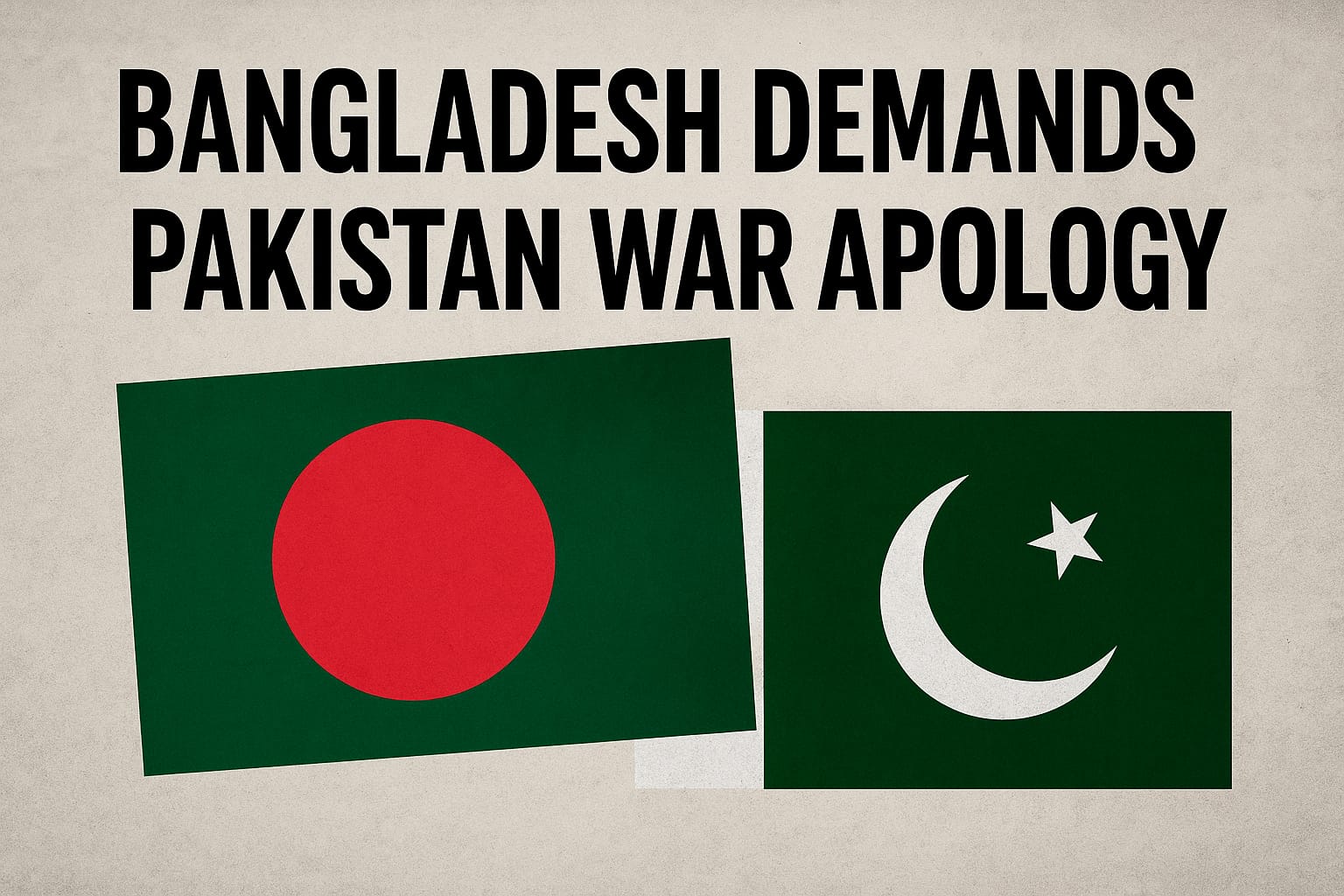
The ties between Bangladesh and Pakistan have always been complex, shaped strongly by the memories of the 1971 Liberation War. The war that led to the independence of Bangladesh was marked by violence, loss of lives, and human rights violations. More than five decades later, the wounds of that time still influence diplomatic relations between the two countries. Recently, during the visit of Pakistan’s Deputy Prime Minister and Foreign Minister Ishaq Dar to Dhaka, Bangladesh once again raised its demand for an official apology from Pakistan for the atrocities committed in 1971.
Dar, who is the most senior Pakistani leader to visit Bangladesh since 2012, came on a two-day trip aimed at rebuilding ties with Dhaka. His visit was also meant to revive cooperation in trade, investment, and regional connectivity. However, the shadow of history could not be ignored, as Bangladesh used the opportunity to bring forward the unresolved issues of 1971.
Bangladesh’s Foreign Adviser, Hossain, clearly stated that while the two countries wish to strengthen ties, the unsettled matters from the Liberation War must be addressed. He mentioned the need for an expression of regret from Pakistan for the violence and genocide of 1971, the issue of assets division, and the repatriation of stranded Pakistani citizens in Bangladesh. According to him, these questions have existed for decades and cannot be brushed aside if the relationship is to move forward with sincerity.
This was not the first time Dhaka placed such demands before Pakistan. Since independence, Bangladesh has consistently pressed for an apology and settlement of wartime issues. In fact, as early as April this year, Bangladesh made the same request in talks with Pakistan. These matters remain highly emotional for the people of Bangladesh because they relate directly to the sacrifices of the Liberation War.
Pakistan, on its part, has avoided a full apology. While former President Pervez Musharraf once expressed regret during his visit to Dhaka, he stopped short of admitting responsibility for genocide. This reluctance has left the matter unresolved, creating an obstacle in building a relationship of complete trust.
The Liberation War of 1971 was one of the most defining events in South Asia. The Pakistani military crackdown in then East Pakistan led to widespread killings, mass displacement, and destruction. For Bangladesh, acknowledging this painful history is a matter of national dignity and justice for those who lost their lives.
At present, both countries are also looking for ways to improve cooperation. During Ishaq Dar’s visit, five memorandums of understanding were signed between Dhaka and Islamabad, covering areas such as trade, information, culture, and diplomatic training. Pakistan also launched the “Pakistan-Bangladesh Knowledge Corridor” project, which includes scholarships for Bangladeshi students in Pakistan. While these are positive steps, Bangladesh has made it clear that only progress on historical issues can ensure a truly balanced and trusting partnership.
The demand for an apology is not merely symbolic. It represents Bangladesh’s insistence on recognition of past suffering and justice. Without such recognition, any effort to strengthen ties may be viewed with suspicion by the Bangladeshi people. The interim government in Dhaka, which came to power after the fall of Sheikh Hasina’s Awami League government in August 2024, has also shown that it will continue to keep these demands alive in its foreign policy.
Relations between Bangladesh and Pakistan have gone through several ups and downs since 1971. Periods of cooperation have often been overshadowed by the unresolved legacy of the Liberation War. By raising the issue again during this high-level visit, Dhaka has sent a clear signal that reconciliation with Pakistan requires honesty about the past.
The future of ties between the two countries will depend on whether Pakistan is willing to go beyond diplomatic words and offer the apology that Bangladesh has been waiting for. If that step is taken, it could open the door for a new chapter of friendship and cooperation. If not, the shadow of 1971 will continue to limit the potential of the relationship.





















